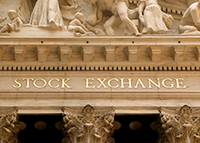CFA Institute Report: Can Self-Regulation Work in Securities Markets?
Since stockbrokers first stood under a buttonwood tree on Wall Street and created the New York Stock Exchange, the role of self-regulation in our securities markets has been the subject of an ongoing debate. While the first securities market in the United States was almost entirely self-regulated, government oversight of the securities markets has become increasingly more complex, resulting in thousands of regulations to which issuers and investors must now adhere. This cumbersome and costly approach raises questions about whether the use of “front-line” regulators like self-regulatory organizations (SROs) has a new place in increasingly complex and interconnected securities markets around the world.
The recent CFA Institute report — Self-Regulation in the Securities Markets: Transitions and New Possibilities — addresses the questions currently being raised about the continued utility of self-regulation in today’s markets and highlights the great potential it offers, especially in emerging markets.
Examining changes in the global self-regulatory landscape since our publication of Self-Regulation in Today’s Securities Markets: Outdated System or Work in Progress? in 2007, the report highlights questions raised in the United States about the relevance of the current system and use of SROs, especially in light of the spate of recent sanctions and fines levied against market SROs, while considering the future of self-regulation internationally. While some question whether SROs can keep pace with the increasingly complex financial products and technologies, others argue that it is just this complexity that makes the expertise found in SROs and their ability to “get ahead” of government regulators all the more important in our fast-paced markets.
Self-Regulation Holds Promise in Emerging Markets
While the more developed markets continue this debate, emerging markets around the world are moving ahead in creating their own self-regulatory systems. Most exciting is the use among developing countries of a market-based self-regulatory approach, circumventing the need for the traditional government securities regulators, which often move slowly in establishing regulatory treatises with each other.
For example, the Latin American Integrated Market (MILA), comprising the stock exchanges in Chile, Colombia, and Peru, exemplifies a self-regulatory system that promotes much more than just increased trading for each country. It increases capital flows for the entire regional market. Relying on commercial agreements among one another, the exchanges allow trading and market development that benefits the region on a scale that would not be obtained if left to the respective securities regulators in each country to hammer out cooperative treatises. It is this approach — competing by working together — that highlights the future of self-regulation in these developing markets and holds the potential for transforming the way we think about self-regulation in securities markets around the world.
Of course, regulation is never this easy. For all the potential benefits, self-regulatory systems also have a number of inherent conflicts that must be addressed in order to remain credible. This report notes a number of them and urges future improvements to SRO governance structures to enhance market and investor trust. Attention also should be given to SROs that seem to operate under systems inconsistent with other SROs.
But despite the challenges, self-regulation holds the potential for not only alleviating the strain on government regulators (which suffer from budgetary pressures and overseeing voluminous regulations), but also for facilitating cross-border market dealings in developing countries. It’s time to pursue this potential opportunity.
If you liked this post, consider subscribing to Market Integrity Insights.
Photo credit: ©iStockphoto.com/DNY59


it is great to invest in CFA.
Great job Linda! Keep up the good work.
More publications should cover this study and lawmakers should be paying attention. It’s up to us to make sure they are informed.